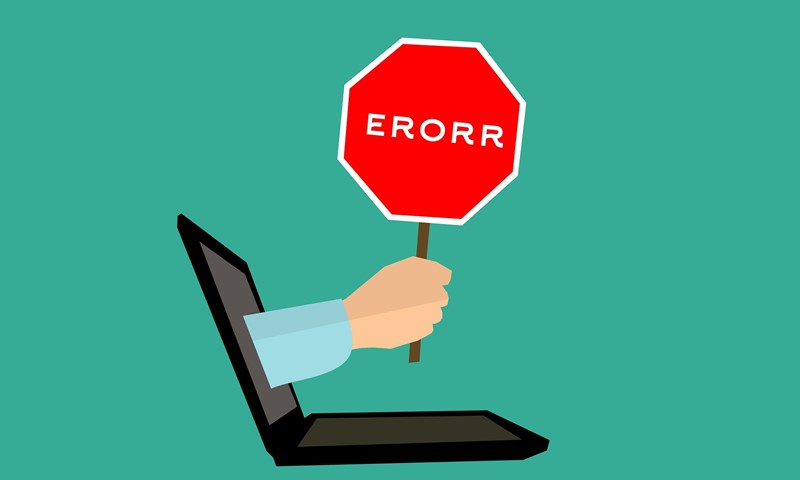It’s exciting getting a new website for your business but it can also be very overwhelming!
There are lots of things to consider and decisions to make.
We’ve put together five of the most common mistakes we see people make when they get a new website built.
1. Choosing the wrong developer
It pays (literally!) to choose the right developer for your website project. As with any job, getting the right person (or company) will make all the difference.
Here are some questions to ask (in no particular order):
- How long have they been in business?
- How big are they? Are they a freelancer or a company?
- What platforms do they specialise in (see point 2)?
- Do they have experience in your industry?
- Have they built similar websites to what you’re after before?
- What results have they achieved?
- What experience do they have in online marketing?
- Who will be working on your project? Do they outsource work to other companies?
- What is their process for website projects? How do they manage them?
- How do they deal with changes and revisions?
What you are looking for is if they are a good fit with both your company and the project itself.
Does the web developer (or company) share similar values with your company? Do you like them and think they’ll be able to work well with you?
With regards to the project itself, do they have the necessary experience and resources to complete your website to a high standard in the agreed timeline? If you’re a large company looking to get a decent-sized website built, it’s likely your project would be too big for a freelance web developer to complete in your timeframe.
Choosing the web developer for your project is one of the most important decisions you’ll have to make when it comes to your new website. If you get it right, they’ll be able to help you avoid making the other mistakes below.
2. Getting stuck with the wrong platform
There is a myriad of different platforms you can build your website on – each with their own advantages and disadvantages.
Choosing the right one for your website is critical. There is nothing worse than to have spent lots of money on a new awesome-looking website and quickly find that the platform isn’t suitable for your needs.
Whichever platform you choose, it needs to support the functionality you are after, not just right now but also in the future. You don’t want to have to invest in a new website as your business grows and you need new features added to your site.
The popularity of some platforms (like WordPress) has been driven by their ease of use for the developer. They are quick to get a great looking site live but can have larger ongoing costs to maintain them.
Umbraco is an example of a lesser-known platform that makes it very easy for anyone to update and manage their website once it’s been built.
You really want to know what options your developer can give, rather than them just being a one trick pony and only using one platform.
Some things to think about:
- Can the platform do what I want?
- Is it easy to use? (for me, not just the developer)
- How much does it cost?
- Can it be customised to fit my design?
- Do I need to touch the code?
Your web developer, if you’ve picked well (see point 1!), will be able to help you select the right website platform that suits your business.
3. Spending too much on design
The first thing your visitors see when they hit your new website is the design. You only have a few seconds (at most) to convince them to stick around so it is important to spend some time and money on getting the design right.
The mistake a lot of businesses make is they focus too much on the design when, in fact, it is only half the story.
The other crucial part of your website is its functionality. No matter how amazing your website looks, if it’s difficult to navigate people will get frustrated and leave.
Having visitors leave your site so soon after they land on it defeats the purpose of having a website in the first place. And frustrating your target audience is definitely not a good way to promote your business and generate leads!
So, when you’re planning your new website, make sure you spend enough time and money on getting your functionality right.
4. Not considering marketing or conversions
Launching a new website is not a marketing strategy! It is only one part, albeit an important one.
Therefore, it’s important you consider how your website will fit into your overall marketing strategy.
How are you sending traffic to your site? What are people’s expectations when they land on your site? What information are they looking for?
Is there a clear flow for them to be lead through your website? Do they end up at a clear call-to-action?
These last two questions are very important. Ultimately the purpose of your website is to convert visitors into leads, prospects, and/or sales (depending on your business).
A website that doesn’t do this is useless!
So, when you’re getting your new website designed, make sure it slots seamlessly into your marketing strategy and is optimised to convert.
5. Not thinking about ongoing support or backups
Ongoing support and maintenance is normally overlooked when getting a new website developed.
Who will look after the site once it’s been built?
Do you have the technical expertise in-house to deal with any issues that might arise in future or are you relying on the developer who built your site?
If you have an ecommerce site and it goes down, you could be losing significant money while it is offline. You need a plan in place to diagnose the issue, get it fixed and get your website back up as quickly as possible.
The beauty of a website is that is available 24/7 to promote your business. On the flip side, it is terrible look if it’s down when a potential customer comes searching.
Also, most website platforms and plugins are continually being updated. Not having your site up to date leaves it vulnerable to attacks. How will you handle this?
Finally, if something does go wrong, are you regularly backing up your site so you can restore the latest version of your site if something breaks?
Your web developer is a great person to discuss this all with and can help you put together a plan to look after your new website once it’s live.
Conclusion
If you nail point 1, your web developer (or company) will be able to help you navigate the other points.
They will be able to advise you on the best platform to use for your website, make sure you don’t forget about functionality, and that the site fits with your marketing strategy. They can also help you out with backups of the site and ongoing support.
If you’re thinking of getting a new website for your business, we’re happy to answer any questions.
Want more from your website?
Get practical, easy to implement guidance and tips to accelerate your online performance with a personalised one on one phone consultation







 Clarity First: A Smarter Way to Approach SEO
Clarity First: A Smarter Way to Approach SEO
 The Risks of Having An Out of Date Website
The Risks of Having An Out of Date Website
 How to Use Marketing Buyer Personas to Improve the Effectiveness of Your Website
How to Use Marketing Buyer Personas to Improve the Effectiveness of Your Website